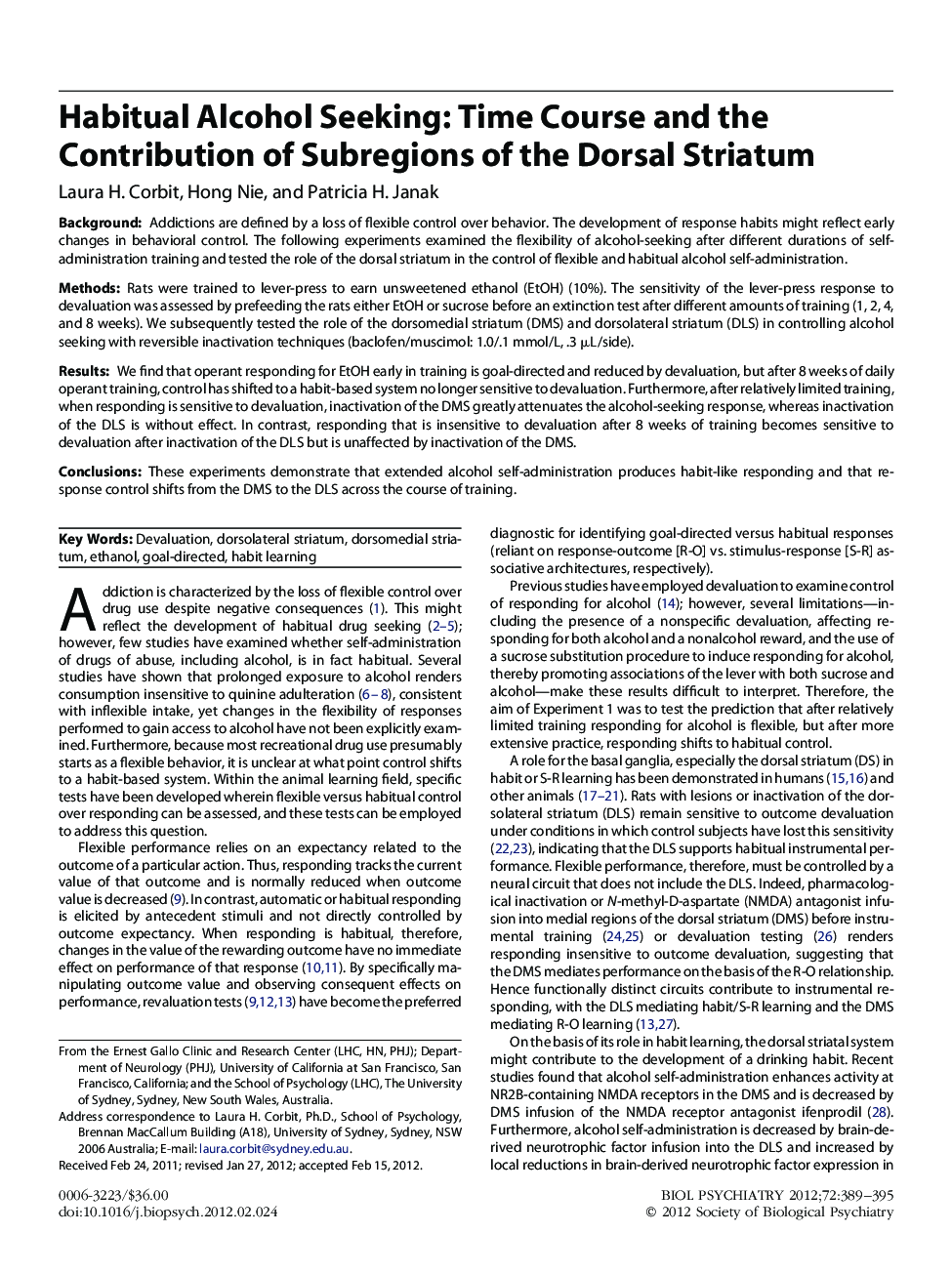| کد مقاله | کد نشریه | سال انتشار | مقاله انگلیسی | نسخه تمام متن |
|---|---|---|---|---|
| 4178702 | 1276509 | 2012 | 7 صفحه PDF | دانلود رایگان |

BackgroundAddictions are defined by a loss of flexible control over behavior. The development of response habits might reflect early changes in behavioral control. The following experiments examined the flexibility of alcohol-seeking after different durations of self-administration training and tested the role of the dorsal striatum in the control of flexible and habitual alcohol self-administration.MethodsRats were trained to lever-press to earn unsweetened ethanol (EtOH) (10%). The sensitivity of the lever-press response to devaluation was assessed by prefeeding the rats either EtOH or sucrose before an extinction test after different amounts of training (1, 2, 4, and 8 weeks). We subsequently tested the role of the dorsomedial striatum (DMS) and dorsolateral striatum (DLS) in controlling alcohol seeking with reversible inactivation techniques (baclofen/muscimol: 1.0/.1 mmol/L, .3 μL/side).ResultsWe find that operant responding for EtOH early in training is goal-directed and reduced by devaluation, but after 8 weeks of daily operant training, control has shifted to a habit-based system no longer sensitive to devaluation. Furthermore, after relatively limited training, when responding is sensitive to devaluation, inactivation of the DMS greatly attenuates the alcohol-seeking response, whereas inactivation of the DLS is without effect. In contrast, responding that is insensitive to devaluation after 8 weeks of training becomes sensitive to devaluation after inactivation of the DLS but is unaffected by inactivation of the DMS.ConclusionsThese experiments demonstrate that extended alcohol self-administration produces habit-like responding and that response control shifts from the DMS to the DLS across the course of training.
Journal: Biological Psychiatry - Volume 72, Issue 5, 1 September 2012, Pages 389–395